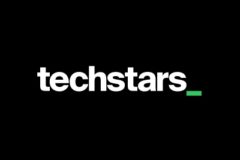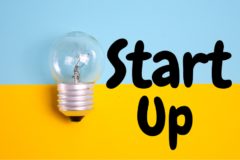This article was contributed to TechCabal by Ayobami Olajide and Ayobamigbe Teriba. Ayobami and Ayobamigbe work with Ingressive Capital, a venture capital firm that writes up to $400K cheques to early-stage startups.
You’re a startup founder. You have overcome every self-doubt standing in the way of you launching out; you have invested painstaking hours in defining your idea and building out your solution. You are convinced your solution is what the market needs.
Definitely, without your solution in the market, the total user experience will be a notch lower. Now there’s only so much you can do with your resources; you need some capital injection to supercharge your operations and expand into new markets. You are thinking of raising capital, but you’re unsure of which is easier: meeting and convincing investors or getting a donkey to pass through a needle’s eye?
The truth is, there has been an influx of investors and investment activity on the continent. Disrupt Africa reported a 68.4% jump in the number of investors in 2020 (370 investors) from 2019’s reported number of 261 investors. This figure still doesn’t capture in totality the number of angels involved in these deals. Three hundred and ninety-seven companies secured $701.5 million in investment in 2020. By the first half of 2021, African startups had raised $1.19 billion based on an index from Maxime Bayen. Nigeria, Egypt, South Africa and Kenya trapped most of the capital flowing into the continent. Long story short, the uptrend continues, meaning there’s capital for you.
How can you partake of this money rain?
What are you building?
Capital activities always follow momentum, simply put, FOMO (Fear of Missing Out). Sometimes it may be geographical (Egypt, Latin America, etc). Other times, it’s sector-based: Fintech has been of serious obsession with venture capitals (VCs) and even institutions. Investors typically depend on signals like increased liquidity events in a particular geography or sector to plug into the next big thing.
For startups operating in the middle of the current market obsession, like BNPL and other startups in the fintech spectrum, it may be relatively easier to raise money than others. Well, there are thematic funds that cater to startups in specific sectors.
Who should you be talking to?
At the initial stage of your company, you should connect more with other founders building infrastructure for what you are building. Also, you need to prioritise taking feedback from customers you are serving in a bid to achieve product-market fit (PMF). Once PMF is achieved, your startup should begin to see some traction.
Accelerators
You can then consider applying to startup accelerators. Startup accelerators like Y Combinator and TechStars have become incredible partners to the growth of the African startup ecosystem. Y Combinator, for example, boasts of backing up to 15 African startups per batch. Edtech startups can consider applying to Injini; fintechs can apply to the African Fintech Foundry. Of general interest can be Google for Startups, Antler, xx.team, and the like.
Even if you can’t get into an accelerator, you can simulate an accelerator experience for yourself by talking to founders building global solutions in your space. We see this with Shola Akinlade of Paystack’s engagement with Stripe leading to its eventual acquisition for $200 million. Engaging global founders is important in the sense that it would help you develop a local playbook based on global perspectives. Also, it puts you on their radar for investment opportunities from their corporate vehicle or angel checks from the founder.
Venture Capital Firms
While a lot of founders defer to this as a first option, it is important to note that VC engagement must be precluded by traction recorded in your startup, e.g., Trade Depot and its founders scaled the venture to a good traction point. VCs are unlikely to invest in idea-stage startups. For example, Ingressive Capital’s investment criteria only caters for post-launch and post-revenue startups. The same goes for a number of VC firms in the ecosystem.
As a founder, it is important to familiarise yourself with the theses of venture capital firms you want to approach. Here are those of Future Africa and Ingressive Capital. You may get pointers for fit between the VC firm and your startup through a thesis alignment check or examine previous round announcements to see the kind of firms and the stage that VC firm typically invests in.
You can also evaluate your startup-VC fit based on the value-add they bring to your company beyond money. You must ask if they offer portfolio company support, follow-on investments or referrals, strategic market access, etc.
You can get the attention of VCs through their online events majorly co-hosted by the general partners of the fund—Is My Idea Fundable? with FirstCheck Africa, Let’s Talk with Microtraction), Invest in the Future with Future Africa), and How I Got Funded (Ingressive Capital).
How should you, and other founders, navigate the capital sourcing process?
Interacting with investors need not inspire fear, provided that you are ready. First, it is necessary to engage and interact with investors to create a human connection. Investors invest in persons they are familiar with.
It is important to get your pitch ready. Vary your pitch to include a one-liner, an elevator pitch and an extensive one, with the aid of a deck. Your investment pitch deck should address the pivotal questions of the problem, why the problem matters, your solution, and the market opportunity (total addressable market).
Furthermore, your pitch should emphasise how your solution measures against current market players. To achieve this, dedicate a section to competitive analysis in terms of product offerings and pricing.
Investors are often regarded as catalysts not creators. They use capital to supercharge your operations and help you achieve scale. It is important to show traction you have recorded in terms of user growth and financials tracked month-on-month (MoM) or quarterly growth for startups less than a year or year-on-year for older startups.
Have a data room where investors can easily access your financial records, financial forecasts, incorporation documents, product demos, team bio and pitch deck. Fundraising is often a nerve-racking period in a founder’s journey but it can prove to be very definitive. Founders must be willing to go all out and give it all it takes. As the legendary Yoda said, “Do or do not. There is no try.”





















